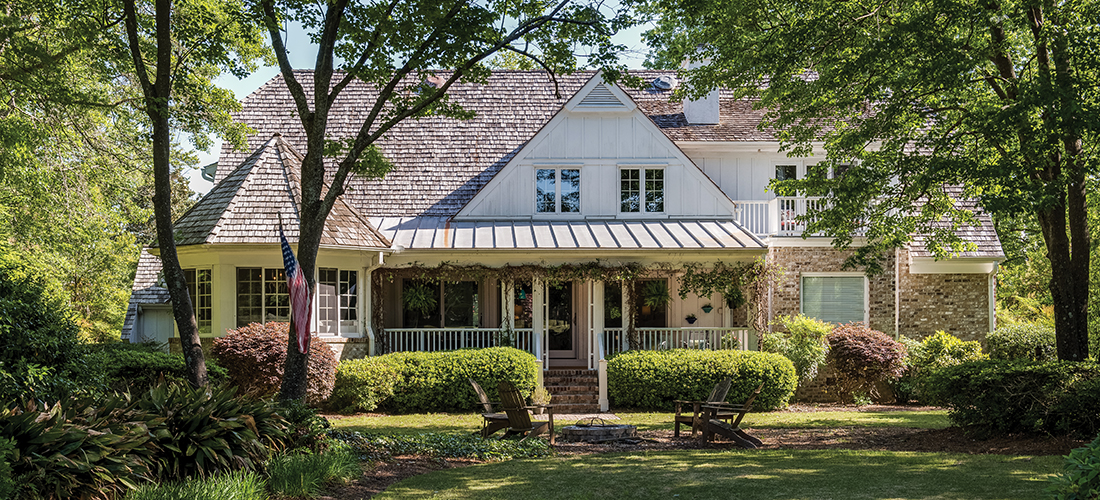Upon my word, this Wilmington named for me is a beautiful town — and a windy one! The kind residents I’ve met thus far have assured me the early spring has been uncommonly breezy. I have found it a trifle hard to maintain the order of my lengthy tresses — not a wig, let me assure you. (Although I am a Whig, if you know such history.)
It reminds me of trying to tame the blowhards and windbags in my homeland’s House of Commons, of which I controlled — quite loosely — 300 years ago, when the empire was twitchily switching from a monarchy to a parliamentary system of governance.
I preferred to buff my fingernails (and still do) than buffet my delicate grey matter with such simian gabble.
You may as well shout down the wind, as many of you modern citizens are discovering with the ill-dressed buffoons in your central government. (You would do much better to reunite with Mother England. Kate and Andrew and all that.)
Nevertheless, I, Lord Spencer Compton, Earl of Wilmington, now see why my young protégé, Scottish-born confidant and royal governor Gabriel Johnston, moved this Colonial capital from Brunswick Town to these graceful nobs and knolls overlooking the Thames-like Cape Fear River in 1739 and had it named for me, his patron.
As a young and scholarly politician, Gabriel had stayed with me in my London manse. I had perfect confidence he would govern wisely and fairly. No other state governor has led as long or as kindly. (Look it up on your intelligent phones, upon which I see you gazing endlessly.)
I have been walking the streets and alleys here, and have ventured forth to the surrounding environs upon a motorcycle, which my Queen Street landlord has graciously taught me to ride. (There were no suitable domiciles on Earl Drive near the, ahem, Kings Grant neighborhood.)
I have adopted the rather scandalous practice of wearing short pants without hose, shoes with no tops and a simple shirt without any kind of overcoat or neckwear.
I have supped at many public houses — very few of note — and have walked the splendid beaches of Wrightsville, Topsail, Oak, Holden and Pleasure islands, finding shells and once, at low tide, two live starfish.
I am not alone in my failed fishing efforts. My surfing lessons will commence once the Atlantic shrugs off what I’m told is an uncommon spring frigidity that has also delayed angling pleasure.
Of course, one of my early stops was inside City Hall to determine the fate of the Spencer Compton Room, one of the very few vestiges of my influence on this area. It’s my understanding it will become City Council offices, and I was hoping to meet with the mayor and city manager about the matter.
But even Lord Wilmington needs an appointment, said city managerial assistant Christine Compton. (No relation. I’ve been a confirmed bachelor.)
Duly noted outside of the city manager’s office is the condition of my portrait, an oil painting.
I must say it looks as if it was dragged behind mules from Brunswick Town. The paint has faded and darkened to the point that my scarlet brocaded waistcoat looks like a dog’s rug and my Order of the Garter medallion (the highest honor for chivalry in all of Britain) resembles a thrift store bauble.
My impeccably dressed mother, Mary Noel, would be mortified. “Medals confer mettle. Keep yours bright,” she was wont to say.
Speaking of medals, I would like to bestow one for tireless and honorable service to 91-year-old Frank Conlon, whom I met while strolling on Nun Street.
He was smartly turned out in pressed khakis, an aquamarine polo shirt and straw hat, pushing a smart wheeled walker as he exercised on a flawless April afternoon.
The reason both King Georges championed me, along with many Whigs and Tories (today’s liberals and conservatives), was because I could keep the wheels of the realm and distant Colonies turning.
Mr. Conlon, I’ve discovered, served as a quiet wheel-turner on City Council and for the battleship across the Cape Fear. He is one of the reasons Wilmington has its grand river walk and a reborn downtown. It was a distinct pleasure to visit with this fine gentleman of advancing years and sterling manners.
Similarly, I was quite pleased to make the acquaintance of Bill Sue while dining with the commoners at Shirley’s Diner in Leland. (That establishment certainly dispels the oft-repeated myth that blacks and whites don’t mix well in the South.)
“Johnny Cash got the money, I got the name,” Bill Sue quipped of his surname.
He was the longtime Brunswick County commissioner, now 83, his pale blue eyes nearly blinded by macular degeneration. He was being squired about by longtime friend Tom Williams, a fellow beekeeper and retired printer who made Sue’s first campaign posters a quarter-century ago.
As county commissioner before the growing boom here, Sue was instrumental in pressing the county to get in the sewage business. There was no way for a rush of new residents to occur without a network of sewer systems and treatment plants.
“You dig down a couple feet and you’ve got water,” he explained over a fried pork chop.
He was also at the helm when hunks of the Route 211 corridor were rezoned to make way for the empire-size, upscale residential developments such as the town of St. James.
I admire those who can see what’s needed for future health and growth. It was my gift, why George II insisted I become the realm’s second prime minister. Even if it killed me.
Now, Sue said, it’s roads and bridges the area will crave. My exciting motorcycling in the area screamed in agreement.
This gentleman invited me to his farm and gifted me with three bottles of his homemade wine: a light muscatel, an easy strawberry and a hefty white.
Days later, I encountered a most ebullient fellow wearing only short swimming pants, running shoes and sunglasses. He stood in the front yard of what appeared to be a haunted house at the corner of Ann and Front streets.
He is reputed to be a local menace, a Scofflaw of the First Order. It seems everyone in Wilmington has a strong opinion of his character.
By his own account, Peter Koke has been locked up “over 100 times.” He’s a developer of sorts, specializing in demolition after natural disasters.
One might say he’s the natural disaster. The 52-year-old Long Island native was convicted of insurance fraud here in February, the same month we heard news of an investigation by the California licensing board into his activities after the wildfires in Santa Rosa.
He waved it off: the price of being the prince of catastrophe.
This fellow Koke has vim and a dim view of permits from the Crown. When I asked if he had a Certificate of Authenticity for the work he’s doing at the historic corner house, he replied that the only pertinent desire is preserving it.
“Every jerk in town wanted to tear it down,” he told me with gusto.
Even though at one point he was staring at $30,000 in fines because of his I’ll-do-it-my-way style, he said, work has clearly progressed. The energetic and chatter-filled tour he gave me showed this man has skills and a certain genius for mastering disaster, quite similar to the current U.S. president’s modus operandi.
“I can see the finish line,” he said of the house, which he calls “my gift to the community.”
I left him to his work and dreams, thinking that if I had a swampy colony filled with snakes, alligators and deathly infections, I would send Peter Koke and expect survival, if not success.
But I wouldn’t want to know the details.
In closing, my loyal subjects, I sincerely apologize to the Azalea Parade festival committee for not making myself available for a Lord Spencer Compton float. All forward-dressing residents would clamor to be aboard.
Next year, of course. — Spencer Compton


